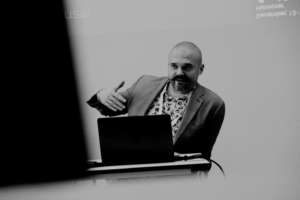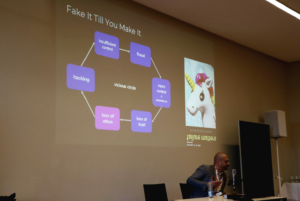
On December 12th-14th Dr Dr Roland Zarzycki participated in “Failure in Science” conference in Hannover, meant to strengthen international networks conducting research on failure and the role it plays both in society and science in particular. The thematic week included classical presentations and panels as well as experiments such as a nonconventional F*** up Tales event, where participants shared and analyzed their personal stories of failing in science. The dramatic history of a counterexample, which for many months prevented Dr Dr Zarzycki from proving a theorem he formulated in the field of geometric group theory, aroused great interest among conference participants.
“Failure in Science” as an interdisciplinary endeavor tackled a wide range of themes, including contextual, critical and comparative view on how ignorance mechanisms and scientific imaginaries are embedded in broader epistemic, organizational, cultural and technological settings. Some of the key insights were those that showed how modern science, commodified in today’s world, covers up its shortcomings and creates powerful pressures on the entire scientific community in this regard. The mindless race for success not only does not serve scientific progress but also has a devastating effect on the psyche of the scholars involved, especially taking into account structural inequalities underlying the harsh academic competition. Despite the awareness of the “publish or perish” culture, the spiral of success-oriented madness is gradually intensifying under the influence of market mechanisms entering the world of science.
As emphasized by Dr Dr Zarzycki, “We should never regret taking the time to reflect on the sense of our actions. Unfortunately, in the contemporary world, critical reflection is increasingly depreciated as something completely impractical. As Herbert Marcuse put it extremely accurately already a long time ago, our civilization, including science, is well organized, optimized and rational, with the exception of one aspect: it is often difficult for us to explain why we do what we do. Therefore, events such as conferences on failures in science and space for joint reflection on the direction in which we are heading are all the more important.”.
The conference was organized thanks to the priceless commitment and huge organizational effort of Professor Matthias Gross (Friedrich-Schiller-University Jena/Helmholtz-Centre for Environmental Research – UFZ, Leipzig), Professor Adrian Mica and Professor Mikołaj Pawlak from the University of Warsaw.



